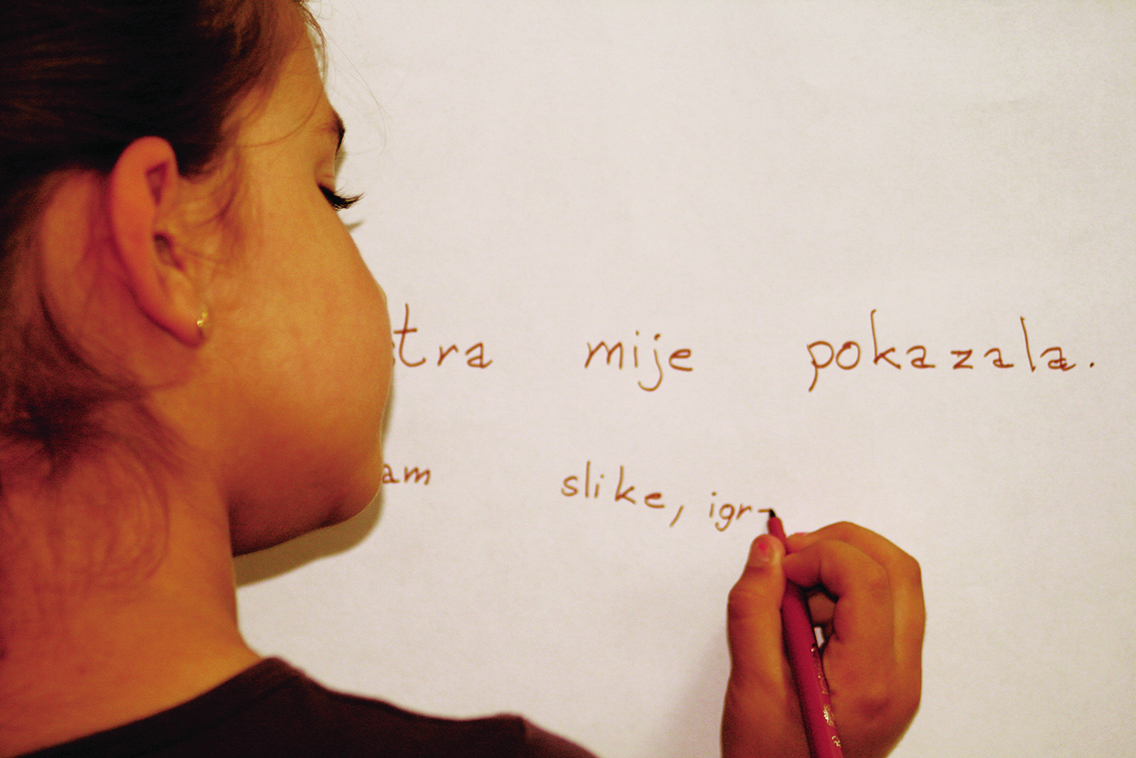 North West Balkans
North West Balkans
Languages
Internet predator targets 9-year old girl from Bosnia and Herzegovina

Sara* is 9 and she’s an excellent student, good daughter and friend. Even though she knows she’s too young, she’s using Facebook social network, like most of her friends. Her parents are aware of this and monitor her online activities, just to stay on the safe side.
It is really fun until she gets some disturbing messages. Unknown man sends her an image of male genitals posted on Facebook, with allegedly her comments about it inserted below the picture. He says he will publish that image, unless she sends him photos of her genital area. Sara* is panicking and worrying what will happen if her family, teachers or friends see that, but luckily, she’s a smart girl, she realizes she can ask for help from adults that she trusts. She tells her parents about what’s happening to her and they contact the police.
Police then launch an investigation and soon, with the help from Facebook and local internet service providers, they manage to discover the IP address from which the messages were sent. Searching the house of the suspect, police find several computers, hard discs, DVDs, phones and other devices. Police have the reason to believe that the owner is the suspect, but it turns out there was another person temporarily staying at the house at the time the messages were sent and using the confiscated equipment. This person was on the run when the police searched the house, but he was arrested at the border crossing, while attempting to leave the country.
This is not a movie scenario or news from abroad. This is the real case that happened in a city in Bosnia and Herzegovina. Through police investigation, police realized Sara* wasn’t the only victim of the same perpetrator. There were another five children that were targeted by this person. Police were able to determine this using the digital investigation equipment EnCase v6, donated by Save the Children.
Following extensive investigation, the perpetrator was charged and then sentenced to four years and three months in prison.
Registered cases are only “tip of the iceberg”
The development of the Information and Communication Technologies has brought significant changes to societies in the course of the last three decades. Bringing along huge advantages, the ICT use has also opened a huge space for different abuses, starting from small socially unacceptable behaviours to the gravest crimes.
The exact number of children who have experienced sexual exploitation and/or abuse is not known. High rates of undetected cases have resulted in the fact that the registered cases make only the “tip of the iceberg” compared to the real number. Also, even when some of them are detected, the priority is given to the protection of the best interest of child/victim, which usually requires the exclusion of public, so the citizens may end up with a wrong impression that there is no sexual exploitation and abuse in BiH.
On the contrary, the results of the studies conducted in BiH have suggested that the children face serious issues in digital environment. The study conducted on a representative sample of children in BiH, 12-16 years of age, has shown that every seventh child has experienced some kind of violence in the digital environment.
According to children, these issues are extremely difficult for them, they are sometimes even bigger than the violence in a real world, although the adults do not pay sufficient attention to them and they often underestimate these problems.
Children access Internet from different devices, usually mobile phones. Most are not aware of the potential risks and they do not know how to protect themselves in internet environment. They often share their own and somebody else’s personal data.
Half of children included in one study received messages from unknown persons, and the same number accepted these unknown persons to be their social media friends. Every tenth child has accepted to meet in real life an unknown person, that is, a person who the child met only through social media networks.
Those who should provide safety to children, primarily their parents and teachers, as a rule, do not have sufficient knowledge about the risks in digital environment. Lack of parents’ knowledge about this matter endangers their control over the children's activities online.
Online safety is also not part of any curriculum, so this topic is rarely discussed in schools. All of this suggests that children in BiH are rather vulnerable while online.
Being aware of these facts, as organizations with the mission to protect the children, UNICEF, International Forum of Solidarity (IFS)-Emmaus and Save the Children have established the BiH Consortium that implements the initiative entitled “End Violence Against Children: Preventing and Tackling Online Child Sexual Exploitation and Abuse in Bosnia and Herzegovina”. The initiative is supported by Global Fond End Violence Against Children (EVAC) and includes wide range of activities in both raising awareness of risks to children on the internet and prevention of exploitation and abuse of children online.
Equipment used to collect proofs in the case from the beginning of this article, worth more than 100,000 Euro, was donated to Police administration of Federation of BiH and to Brcko District Police. Besides procuring the forensic equipment, Save the Children also organized specialised training for police professionals on the use of this equipment.
Through its activities, Save the Children also works to strengthen judiciary institutions in tackling cases of internet exploitation and abuse of children, supports internet service providers in identification and reporting on possible cases of online exploitation and abuse of children and advocates for introduction of online safety into regular school curriculum.